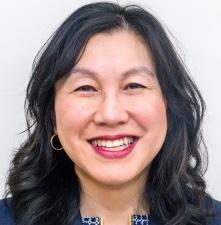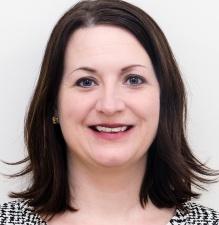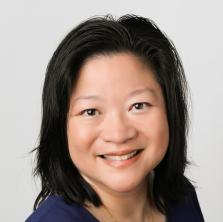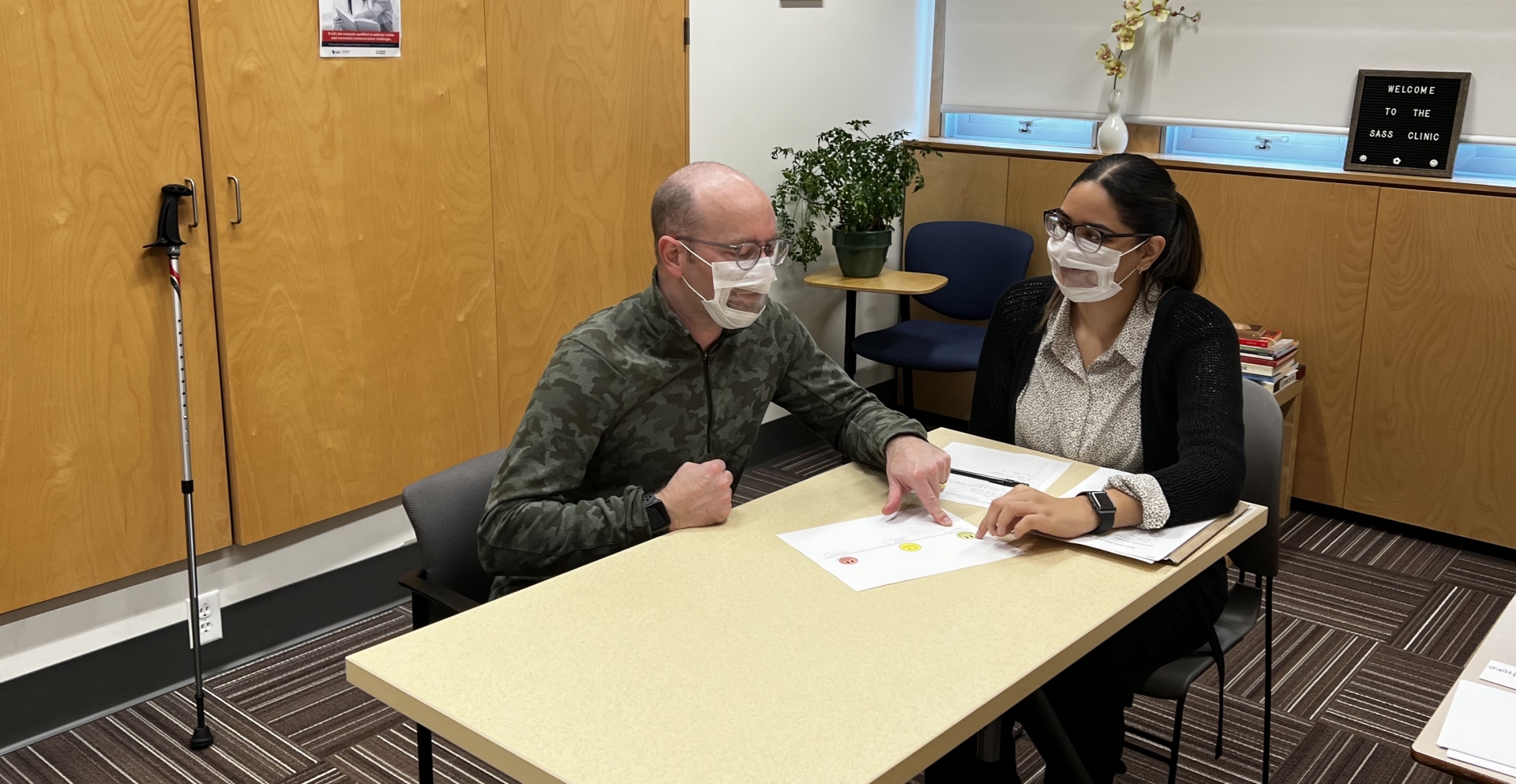The COVID-19 pandemic led to a years’ worth of work being cancelled for the Academic Coordinators of Clinical Education team at the School of Audiology and Speech Sciences. However, the unexpected shift also presented great opportunities, resulting in two in-house student-led clinics being developed as pilot projects for Speech-Language Pathology and Audiology.

Marcia Choi, Lead and Academic Coordinator of the Clinical Education Team, explained that Speech-Language Pathology and Audiology programs across Canada have various levels of in-house clinical training, but the COVID-19 pandemic emphasized how vulnerable the UBC program was to external events and how critical the need for in-house clinical training was.
“We needed to create a buffer and a stable, protected supply of clinical training experiences so that if we ever have to shut down for another reason, we’re not vulnerable again. We had to cancel a years’ worth of work. It was heartbreaking,” said Choi. “For a year and a half, we had to create things and move things around to get our students out in the field.”
The team was able to analyze the feasibility of producing in-house training programs and established four principles to create a protected supply of in-house clinical training: (1) use pre-existing equipment and space, (2) better prepare students, (3) serve the community, and (4) focus on in-house training being a new norm.
The student-led Speech-Language Pathology clinic, which was operational in the Fall of 2021, provided speech-language assessment and treatment services to adults with neurogenic communication disorders. Speech-Language Pathology Clinic Coordinator, Cheryl McGee, shared that she was originally concerned that there wouldn’t be enough clients to fill the schedule, but the opposite ended up happening. The clinic quickly filled to capacity, and while that was reason to celebrate, McGee explained that the difficulty was turning clients away who needed the services.

“If you can imagine yourself speaking with one of those clients who’s had a life-changing event, whether it be a traumatic brain injury, Parkinson’s, Dementia, or stroke, and sharing the news that we’re at capacity; that was a difficult challenge,” said McGee.
McGee explained that one of the goals of the Speech-Language Pathology clinic was to provide interprofessional clinical training opportunities with existing UBC programs. As a result, they collaborated with an existing student-led clinic: the Physical Therapy & Research Clinic.
“We had two opportunities for grand rounds. Both the Speech-Language Pathology and Physical Therapy students met and we talked about our mutual clients from the physio perspective and the communication perspective. It was really amazing clinical learning for both groups of students,” said McGee.
On January 15th, the student-led Audiology clinic will open its doors to provide free hearing assessments to adults. Audiology Clinic Coordinator, Grace Shyng, explained that people are becoming increasingly concerned about hearing loss, and that there’s been an overwhelming response from the community with regards to the clinic.

“It’s amazing how quickly the word has spread and it highlighted for us that people are concerned about their hearing. We know this is a growing issue with hearing and hearing loss,” said Shyng. “Our population is aging and the fastest growing demographic is seniors. The most common cause of hearing loss is associated with aging.”
The World Health Organization’s World Report on Hearing predicts that there are approximately 1.5 billion people with some degree of hearing loss and estimates that by 2050 that number will increase to 2.5 billion due to the aging population.
Shyng shared that by having an in-house clinic, Audiology students can learn more than just clinical skills.
“Students will get a chance to conduct a hearing test on a real person and develop not only clinical skills, but the soft skills required for client interaction,” said Shyng. “When a client comes in, you want to put them at ease and talk to them professionally about their hearing health. These are skills you can read about, but you can’t get comfortable with until you actually do it.”
Choi explained that it’s best practice to train students in-house before sending them out into the world, and that this is just the tip of the iceberg when it comes to future opportunities.
“There’s no question in my mind that these clinics are an excellent fit for our program,” said Choi. “I’m not married to what they look like; I’m more married to the fact that both clinics have demonstrated that they provide excellent student education, and that’s what we most care about.”
The future of both clinics will be reliant on collected outcome measures, stakeholder feedback and decisions from the University in order to become formally operationalized.
To learn more about the School of Audiology and Speech Sciences clinics, visit https://audiospeech.ubc.ca/sass-clinics/.
Written by Kelsea Franzke
